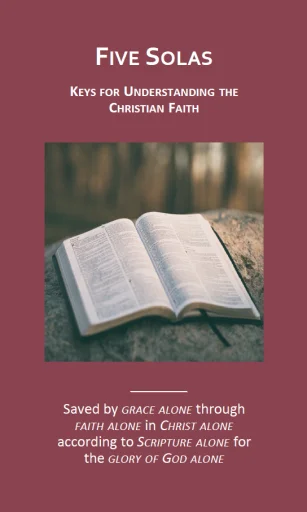As we were sharing the gospel message with those on the streets downtown, we heard the claim several times that “we are in hell now”. Some say they are experiencing a “living hell” or compare their suffering to “hell on earth”. These are meant to be idioms but some take them as more. I can only speculate that some tell the homeless these things to console them in their current suffering, giving a future hope for heaven.
Undoubtedly, we recognize the horrific suffering that some experience for a variety of reasons. We also know that disease, pain, suffering and death are intruders in this world because of sin. Sometimes people suffer because of their own sin, sometimes it is because of the sins of others, and other times we do not know the direct cause or purpose. We can’t always explain the cause or purpose of an individual’s suffering.
We should take the opportunity to explain and correct some of these errors as we lead them to the gospel.
Hell is a place, not simply an experience in our current location.
To say “we are in hell now” is to say that hell is merely an experience here on earth and not a location. This leads us to compare our life experience to others and we get the perception that others don’t have it so bad, and we just got dealt a bad hand. Some people seem to have it all together and we forget that they too have their own struggles, pain, and feelings of inadequacy. Satan is “the accuser”, wants us to think this way but his purpose is to steal, kill, and destroy (John 10:10).
Hell is described in scripture as a physical place with gates (Matthew 16:18). It is the place that God sent the devil and his fellow rebellious angels when they sinned (2 Peter 2:4). It is the place where God casts the sinful (Matthew 5:29). It is the place the wicked will be sent at the final judgment (Matthew 25:31-34, 41).
Does hell exist now?
Hell, or the lake of fire, is a future destination for the wicked when Christ comes to judge the world (Revelation 21:8). This future destination is the second death. The first death is the physical death we experience because of sin (Romans 6:23), which is why Christ had to die a physical death (Colossians 3:22) to reconcile us to God. This is a great tie to the gospel message!
Hell is also a present reality. In 2 Peter 2:4, the sending of the rebellious angels is a past event, something that has already happened, they were sent. In the story of the Rich Man and Lazarus (Luke 16:19-31), Jesus tells of two men who died, one went to heaven, one went to hell. The Rich Man is in torment in hell and asks if Abraham could send someone to warn his brothers (Luke 16:27-28) who were still alive and on earth. This is consistent with the idea that hell exists now, it is separate from earth, and when we die we go immediately to heaven or to hell.
Peter uses the example of rebellious angels being held in punishment now to demonstrate that he does the same with the people of the Old Testament, holding the wicked in punishment until future judgment (2 Peter 2:4-10). Hell does exist now, but more fully in the future. It is as if the wicked are held in the outer courts of hell after death then thrown into the core at the final judgment.
It is interesting to consider that God promises a new heaven and a new earth (Isaiah 65:17), both of which were corrupted by sin and need to be made new (Romans 8:18-21). But there is no mention of a new hell, it is thrown into the lake of fire. Hell was not corrupted by sin but was created because of sin and never lost its original purpose.
There is horrible suffering in this world today. All of us suffer to some extent, but is our suffering at the same level as suffering in hell?
Let’s look at Jesus as an example. We understand that he was born of a virgin, but still born into this world as all other flesh is. He would have experienced much of what is common to man. As he began his earthly ministry, he was baptized by John the Baptist and the Holy Spirit then was led into the wilderness, went without food for 40 days and was then tempted by the devil (Matthew 4:1-11). Later, in the Garden of Gethsemane, he prayed “Father, remove this cup from me” even to the point of sweating drops of blood (Luke 22:42-44). This was even before the extreme torture brought upon him leading to his crucifixion and horrific death (read Matthew 26-27). The Romans were experts at death and torture. On the cross, he cried out “My God, My God, why have you forsaken me?” (Matthew 27:46). In fact, when we look at his earthly life, he suffered much in many ways, yet was without sin (Hebrews 4:15).
Through the crucifixion, we see a small taste of the pain and suffering, but Jesus suffered more than just what he suffered in his flesh. God crushed him. Read Isaiah 53, see the suffering that is spoken of in the first 5 verses. Isaiah 53:5 says, “he was pierced for our transgressions, he was crushed for our iniquities.” Jesus took on the full punishment for our sin. He had to take on the whole wrath of God to pay the penalty in full, as “we were objects of God’s wrath” (Ephesians 2:3). We cannot endure God’s wrath, we cannot look at him and live (Exodus 33:20).
Hell is much worse than anything we experience here on earth.
If all of this were not enough, we are given a picture of hell and God’s judgment in the scripture (Mark 9:48). Building on the previous passage in 2 Peter 2, at judgment there is the second death, the lake of fire (Revelation 20:14). Later, it speaks of the wicked and their portion in the lake of fire (Revelation 21:8). We cannot forget that we are guilty and can only escape God’s wrath by his grace (Ephesians 2:4-5). That was done on the cross. It is because of God’s grace that our names are written in the book of life (Revelation 20:15).
Our suffering is validated in the need for salvation, we recognize that things aren’t right. Without hell, there is no good news. If we are experiencing hell now, we diminish the suffering of Christ.
See also: What Happens After You Die?
 Evangelism Interview with Tony Ramsek: Booth Ministry
Evangelism Interview with Tony Ramsek: Booth Ministry
 Podcast Episode 10 with Jenifer Pepling
Podcast Episode 10 with Jenifer Pepling
 Tulip: The Beauty of God’s Grace
Tulip: The Beauty of God’s Grace
 Five Solas Business Card
Five Solas Business Card